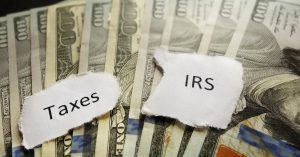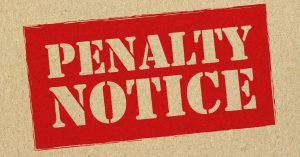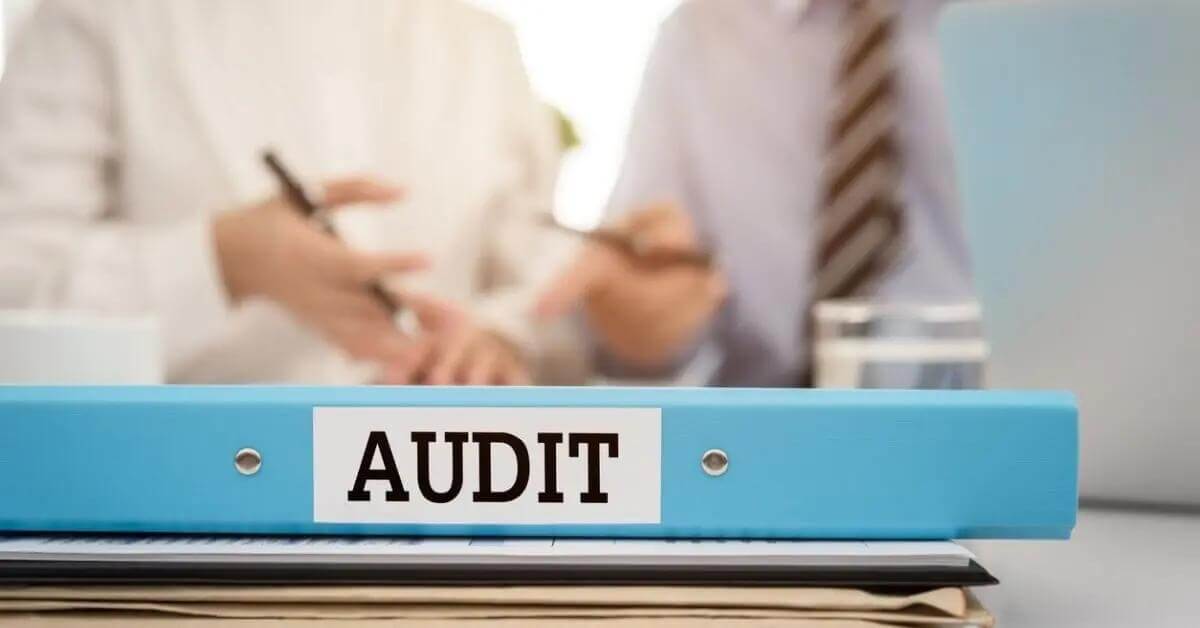Many Americans fear being audited by the Internal Revenue Service (IRS), but their chances of going through that process are extremely low. Most are honest and pay their fair share of taxes, after all, with one IRS survey showing 95 percent of United States taxpayers believe it is their civic duty to do so and that 87 percent say it’s unacceptable to cheat on their income taxes.
The fear is still there, though, even if most people do their best to stay on the right side of the law. Audits can happen for a lot of reasons beyond cheating the system, which leaves many taxpayers wondering how likely it is that the IRS will look into their information.
Less than 1% of individual tax returns are audited. Your chance of being audited is about 1 in 160, so it’s pretty unlikely that you’ll be audited. However, there is always a chance that you could be randomly selected for an audit or a discrepancy on your return could trigger a tax audit.
You can never guarantee that you’ll be audited (and a tax professional can’t guarantee this either), but there are some steps you can take to reduce the chance that your return is flagged for an audit.
It’s worth repeating that many things can trigger an IRS audit. Obviously, inaccuracies on forms, claims for deductions which you do not qualify, or the failure to report certain income will result in problems. But it would be difficult to list every type of behavior that could result in an audit.
If you receive a notification from the IRS, please never ignore it. Such notices often specify a certain time for which to reply. Failure to reply can only lead to additional problems including penalties.

Facts about IRS Audits
| Key Tax Audit Information | Tax Audit Statistics |
|---|---|
| Audit Rate for taxpayers with Total Positive Income(TPI) of $5–10 million | 2.2% (source) |
| Audit Rate for taxpayers with TPI of $1–5 million | 1.2% (source) |
| Total Audits in FY 2021 | 626,2042 (source) |
| Regular Audits in FY 2021 | 93,5952 (source) |
| Audit Rate for taxpayers earning $1 million to $5 million (based on 2019 returns) | 1.3% (source) |
| Average Audit Rate decrease for certain returns | From 0.9 percent to 0.25 percent (source) |
| Average Audit Rate for all tax returns | 0.4% in 2022 (source) |
| Audit Rate for taxpayers earning $1 million to $5 million (2019-2022) | 0.4% (source) |
| Audit Decline Rate for individual income tax returns with total income between $200,000 and $500,000 | 82.1% (source) |
| Audit Rate for all returns last year | 0.38% (source) |
Understanding your risk of being audited starts with understanding a little more about the IRS and how prevalent its audits truly are. Here are a few more facts to keep in mind surrounding audits:
- One in 220 taxpayers was audited in 2019 — a significant decrease from a decade before when the odds were one in 90.
- The decrease came from a reduced tax agency budget and reductions in IRS personnel.
- COVID-19 may have lowered the likelihood of audits in 2020. Many IRS offices are still closed, and pandemic restrictions make the process challenging.
- Wealthier taxpayers may soon have a greater chance of being audited in 2021. The IRS was criticized for auditing too many lower-income taxpayers in 2018, and has since said it would examine more high-income individuals.
- 30 percent of high earners were audited a decade ago, but just 7 percent of them went through the process in 2018.
- Taxpayers with lower incomes and who claimed the Earned Income Tax Credit meanwhile made up 39 percent of all audits that year.

8 Major Tax Audit Triggers to Avoid
| Major Reasons for Tax Audits | Description |
|---|---|
| 1. Reporting Significantly Less Income | The IRS keeps close tabs on income earned every year, and it’s common for them to look back at your past filings and compare them with current ones.Many of the returns that are flagged for audit are people who are self-employed and show a net loss for the year. The IRS will want to see if that is actually accurate and you truly had no adjusted gross income. Over 3.5% of returns with a zero adjusted gross income are audited. |
| 2. Missing Tax Forms | Whether you are a contractor or full-time employee, your employer will forward to the IRS W-2 information and copies of 1099 forms. Not including such forms in your individual returns alerts the IRS to a potential problem. |
| 3. Self-Employment Status | For a variety of reasons, the IRS pays closer attention to returns of individuals who are self-employed. It’s especially important for such individuals to be accurate in all filings with the IRS. |
| 4. Claiming Hobby Expenses as Business Expenses | The IRS prohibits writing off expenses for hobbies. Therefore, take care when declaring expenses that have no legitimate tie with your business. |
| 5. Claiming Home Office Expenses | When taking deductions for use of a home office, use of the office need to be entirely for business. Deductions are not allowable for only periodically conducting business in the home office. If your home office expenses appear exorbitant, the IRS may be suspicious. |
| 6. Excessive Entertainment and Meals Expenses | Do not deduct such items without there being a legitimate business connection. The IRS will closely check on these sorts of deductions. |
| 7. Failure to Report on Overseas Accounts and Assets | Accuracy in reporting on overseas assets is crucial. The penalties for inaccurate or incomplete reporting are severe. |
| 8. Large Charitable Contributions | If you claim huge charitable contributions that don’t match up with your income the IRS will want to know more. |

13 Pro Tips for Avoiding an IRS Audit
It’s impossible to predict exactly how many people will be audited in 2024, but there are steps you can take to significantly lower your risk.
You wouldn’t be alone in your thinking if when you submit your taxes each year, you have a moment where you worry about a potential audit. Who gets audited the most? Are you an IRS tax audit risk because of how you file your taxes?
Nobody likes the thought of facing an IRS tax audit, so how can you avoid an audit yourself? Read on for these tips on how to avoid audits by the IRS.

1. Keep Better Records
Many taxpayers make mistakes on their returns because they forget about forms they’ve received or certain streams of income. Keep all applicable records throughout the year, including documents like expense receipts, and store them in one place.
Another area that gets the attention of the IRS is when a filer doesn’t include all of their taxable income in their return. This is likely to happen when you leave off income from a 1099 form.
1099 employees are often independent contractors and freelance workers. It’s likely they may have worked for a variety of employers over the course of a year. If you’re a 1099 worker, it’s important to keep track of who you’ve done work for over the course of a year.
If you fail to get a 1099 form from someone, but still had income you should include it on your 1040 form.
Remember, the employer is still reporting to the IRS. So, your records for income need to match those of the IRS. If the IRS finds they don’t match and the amount is small, they may send you a letter telling you they’ve made an adjustment to your return. If the amount is larger or there are multiple inconsistencies, then you could be facing an audit.
Wait until you have all the necessary forms and documents before you start to file. This will help you avoid confusion and omissions that will need to be amended.

2. Be Reasonable with Deductions
Make sure the deductions you claim are reasonable and within the normal limits of what you would regularly submit when filing your taxes. If you find you need to claim something that might be out of the ordinary, be sure you have the proper documentation to back up why it should be allowed.
There are certain deductions and credits that might make you more likely for an audit. Deducting medical expenses, home office, and self-employment expenses, and large charitable contributions are often scrutinized.
You should have documentation for any of these deductions and make sure you are eligible for them.
Abnormal itemized deductions that do not have proper documentation become red flags to the IRS, thus triggering an audit. It helps to make sure you’re aware of the deductions you’re eligible to receive, too, because these often change from year to year — sometimes without warning. A tax professional can help you sort these out if you’re unsure what counts as a “reasonable deduction.”
Unrealistic or huge deductions can be a red flag for the IRS. And what happens if you get audited and don’t have receipts?
If you claim certain business deductions, you want those deductions to be in line with the type of work you do. You also want the amount to seem realistic to what you make while working.
Pay attention to the amounts you’ve used for deductions in the past. If suddenly your deductions are enormously larger in amount than ever before, it’s a red flag for the IRS.
It really comes down to claiming deductions that are legitimate and that you can back up with receipts and you shouldn’t find yourself in an audit.

3. Don’t Attempt to Lie to or Cheat the IRS
You’ve may have heard plenty of stories of people fibbing, stretching the truth on their taxes in an effort to make some money back in a return. The truth is that it doesn’t make sense to lie on your tax forms. If you do get an audit and you’ve lied, it becomes even harder to support your case in front of the IRS.
The IRS is pretty darn good at spotting it when someone has exaggerated the numbers. If you do lie and the IRS catches even the smallest of lies, be prepared for them to start for other things you’ve potentially like about too.
This may seem like an obvious point, but many people try to cheat the tax system every year by claiming excessive or unreasonable deductions or trying to make themselves fit into loopholes that don’t apply to them. This only increases the chances of an audit, because the IRS has systems in place to flag such claims and request additional information.
Penalties occur if you make claims and cannot support them with appropriate documentation, making the decision to lie or cheat a dangerous gamble. If you are truthful about what you earned, however, and report the right deductions and credits, it is unlikely you’ll be audited or have a negative result from an audit.

4. File Electronically
The IRS encourages taxpayers to submit their returns electronically because electronic returns are more accurate than their paper counterparts. The error rate for paper returns is 21 percent, according to the IRS, but just 0.5 percent for e-file returns. This is because the system was built with safeguards in place to help minimize such issues.

5. Be Careful with Home Office Deductions
Many people are tempted to overdo home office deductions when they run businesses out of their homes or work as independent contractors. Such deductions need to be well within the definition of “reasonable,” as it could be a huge red flag to the IRS if you claim a home office deduction that is a significant portion of your income.
In other words, don’t try to deduct your entire monthly rent as your home office deduction, but instead claim just the percentage of your home that is actually used solely as a workspace. Any claimed work expenses must also be completely business-related.
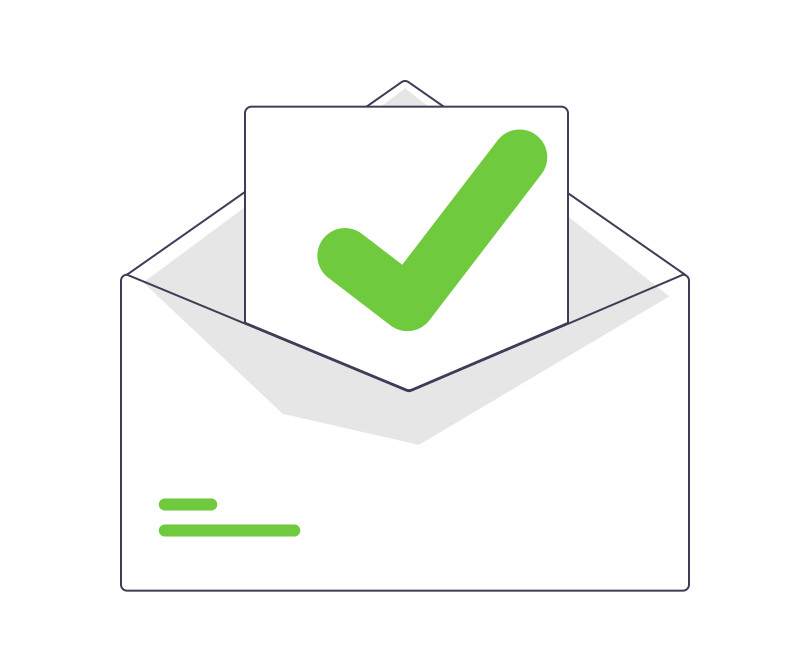
6. Check Your Mail
How many times have you received a 1099 form for investment income, freelance income, or some other income that you forgot about? Make sure you are checking your mail to get any forms that must be mailed to you, by law, by January 31.
Even a small amount of interest earned on your checking account must be reported. If your bank reports this to the IRS but it doesn’t appear on your tax return, the IRS will look more closely at your return.

7. Check Every Detail
Small errors, such as transposing a number from your W2 or an incorrect social security number might flag your return for an audit.
Your social security number is how the IRS identifies you. Like a math error, it’s not uncommon for people to transpose numbers when they’re recording them.
You might also be entering the social security number of a spouse or children that aren’t as familiar to you as your own. This is an easy spot to make a simple mistake and an easy one to check too. If you enter the wrong social security number, the information on your tax form won’t be connected to you. It will be hard for the IRS to act, good or bad, on your tax forms.
The IRS wants to see that all of the information promoted to them matches what is on your return. Check, double-check, and then check again to make sure everything is correct.
There are a lot of numbers that go on a tax form each year and the spaces are small. If you’re not a tax professional who works with these forms all the time, it can be easy enough to make a mistake. It’s also pretty darn easy to fix before you actually submit the tax paperwork. Yet, the IRS says one of the biggest mistakes people make on their tax forms each year involves math errors. When you file electronically, the computer actually helps with avoiding a math mistake. Yet, you still need to enter the numbers correctly.

8. Fix Mistakes
If you make a mistake on your return and discover it later, file an amended return. You might be reluctant to do this, an amended return might increase your chances for an audit, a return with mistakes is much more likely to result in an audit.
If you notice a mistake, file the amended return. Don’t take a chance on the IRS finding it.

9. Business Owners and Schedule C
There are two things the IRS knows about business owners or sole proprietors. First, they historically have many deductions, some that may not be legitimate. Second, they don’t always claim all of their income.
This automatically makes a business owner who files Schedule C forms at a higher risk for an audit.
Two additional red flags for IRS auditors is if a business claims very high losses and very high deductions. A business that has historic losses over and over probably isn’t going to stay in business.
If you run a cash-intensive business, where much of your income comes from cash, you’re also at a higher risk and need to be careful to account for both income and deductions.
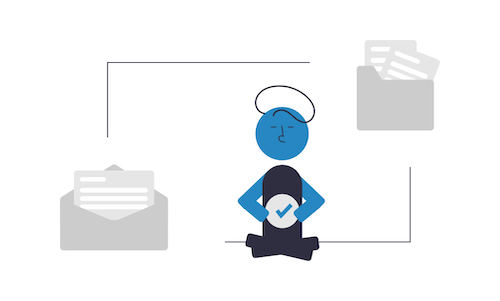
10. Don't Not File
The IRS expects you to file your taxes yearly. It might come as a surprise to you if you’re responsible and do what you’re supposed to do, that some people don’t file their taxes as they should.
Not getting a tax return from you, makes the IRS want to take a closer look at your taxes.
Again, this is especially true for higher-income wage earners. Remember, the IRS is in the business of collecting tax dollars. If you’re a high-income earner, the IRS wants to make sure you’ve paid what you’re supposed to pay. This makes you more open to scrutiny, especially when you don’t file your tax returns like expected.
The IRS imposes severe tax penalties and interest, so working out a payment plan or securing a loan that allows you to pay the balance are your best options. You may also want to consider using the IRS Fresh Start Program. This program allows people who owe back taxes to pay their obligation without the risk of liens being placed against their homes or vehicles.

11. The American Opportunity Tax Credit
The American Opportunity Tax Credit allows parents to write off college expenses for dependents for up to four years. The deduction is worth $2,500 for books, tuition, and but not living expenses for college.
Early in the program, many parents continued to use this deduction beyond 4 years. The program is phased out for higher-income earners, usually above $160,000 for married filers.
Because some filers took advantage of the program and used it beyond its intention, the IRS has really started to watch those filers who use this as a deduction.
They will watch for:
- Claiming the credit for more than four years for the same student
- Leaving off the school's taxpayer ID number on Form 8863
- Using the credit without receiving Form 1098-T from the school

12. Don't Forget To Sign Your Tax Forms
Forgetting to sign your tax form will not necessarily get you an audit. It will, however, have the IRS looking more closely at your return. You don’t want to give them a reason to scrutinize your return more closely, which could potentially lead to an audit.
You’ll surely get your tax return rejected and have to resubmit, slowing down the processing.

13. Work with Qualified Tax Attorneys
Partnering with experienced tax attorneys gives you a much better chance of accurate reporting, which will also help you avoid an IRS audit. These experts can review everything for you and ensure you’re following all guidelines and regulations that apply to your situation, plus help you define “reasonable” claims and make sure you’re taking advantage of any deductions you might not know you qualified for.

Looking for Tax Help?
Filing taxes and staying up on changes to the process is often time-consuming, intensive, and intimidating for taxpayers. No one wants to make a mistake that lands them in hot water with the IRS, and those who find themselves facing audits likely have no idea which steps they should take to protect themselves.
Silver Tax Group’s qualified tax attorneys are here to help you avoid audits in the first place, or manage your audit defense if you end up facing one. Gain peace of mind and take the right steps with our team of tax professionals on your side. Contact Silver Tax Group today for more information or to get started.

